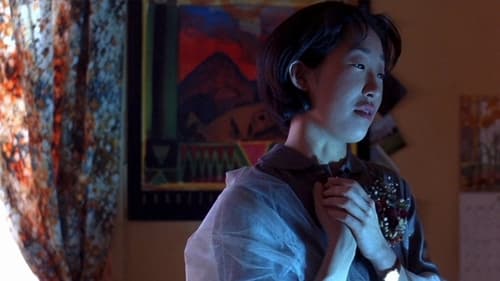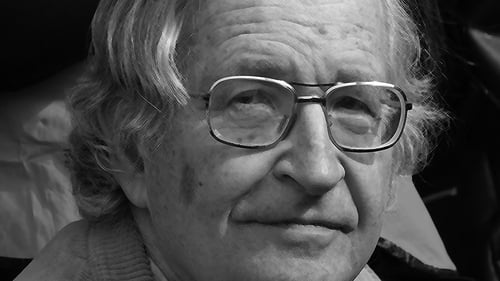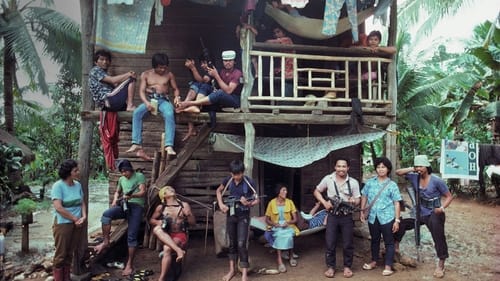
Director of Photography
A feature documentary investigation into the colourful and sometimes controversial life of Vancouver lawyer, city councillor and socialist icon Harry Rankin.

Director
Consider a world where all human communications are represented by numbers, a digital world. Imagine a future archaeologist finding a DV cassette from hundreds of years ago (a real found object, Circa 2006, full length and uncut). Imagine trying to decode this ancient digital object, codecs unknown, obsolete, hardware long lost. Crack the code? Available algorithms scan, databases compare, construct, deconstruct, reconstruct the artifact. 2006, the dawn of self-by-numbers, digitized identity. What human fragments, fugitive narratives, remain? Do we have a future history? What will the algorithms decide?

Additional Camera
Documentary about the Holy Angels Residential School in Alberta, where hundreds of First Nations children were imprisoned.

Director of Photography
Bevel Up is an educational film designed to give students and instructors access to the experience of health care practitioners who work with the drug-using population of Vancouver’s Downtown Eastside. Produced by the same street nurses who work with these users on a daily basis, the film contains invaluable knowledge that can't be found in nursing schools and teaching hospitals.

Director of Photography
In Vancouver, Alex, from the Nisga’a Nation, talks about the abuse and violence that drove him to take his first drink. Paula, a Woodland Cree woman, started shooting up at age 11; soon, the only way to support her habit was as a sex worker. As a five-year-old girl, Desirae was put into foster care; now as an adult with her own kids, she struggles to break the generational cycle of addiction.

Director of Photography
In sixteen chapters containing four and a half hours of materials, Tracks Across Sand offers a unique chance to travel to the edge of the Kalahari, to a struggle for indigenous rights, and into the heart of contemporary South Africa. Driven from their lands, forced into a life of destitution, and denied the right even to speak their own languages, the ‡Khomani San fight for their heritage. Culled from over 130 hours of video recorded between 1996 and 2010, Tracks presents a unique record of the ‡Khomani San, bringing together the story of Africa's first Bushman claim, from preparation through to ten years after the claim was granted. Seen through the eyes and told in the words of the ‡Khomani San themselves, this film chronicles the struggle for indigenous rights by a people who are defying a history that has attempted and failed to make them disappear.

Director of Photography
The battle between loggers and environmentalists is defining, dividing and destroying communities in Canada and around the world. The Green Chain is a powerful, funny and thought-provoking film about the people who love trees.

Director of Photography
Since the late 18th century American legal decision that the business corporation organizational model is legally a person, it has become a dominant economic, political and social force around the globe. This film takes an in-depth psychological examination of the organization model through various case studies. What the study illustrates is that in the its behaviour, this type of "person" typically acts like a dangerously destructive psychopath without conscience. Furthermore, we see the profound threat this psychopath has for our world and our future, but also how the people with courage, intelligence and determination can do to stop it.

Director of Photography
Peeling back the layers of her grandmother's life, filmmaker Linda Ohama discovers a painful, buried past in this feature-length documentary. Asayo Murakami, 103 years old, recalls life in Japan, her arrival in Canada as a "picture bride," her determination to marry a man of her choice, the bombing of Hiroshima and the forced relocation of her family during WWII. Beautifully rendered dramatic sequences are merged with an exquisite collection of memories, feelings, images and voices. Culminating in an emotional reunion with a long-lost daughter, this film is a personal reflection of Japanese-Canadian history and a testament to one woman's endurance and spirit.

Camera Operator
This feature-length documentary is a portrait of eclipse chasers, people for whom solar eclipses - among nature's more spectacular phenomena – are a veritable obsession. The film follows 4 of them as they travel incredible distances to witness the last total eclipse of the millennium as it sweeps eastward across Europe to India. At various points along the way enthusiasts Alain Cirou in France, Paul Houde in Austria, Olivier Staiger in Germany and Debasis Sarkar in India offer their impressions of the historic event.

Producer
In 1994, the Zapatista National Liberation Army, made up of impoverished Mayan Indians from the state of Chiapas, took over five towns and 500 ranches in southern Mexico. The government deployed its troops and at least 145 people died in the ensuing battle. Filmmaker Nettie Wild travelled to the country's jungle canyons to film the elusive and fragile life of this uprising.

Director of Photography
In 1994, the Zapatista National Liberation Army, made up of impoverished Mayan Indians from the state of Chiapas, took over five towns and 500 ranches in southern Mexico. The government deployed its troops and at least 145 people died in the ensuing battle. Filmmaker Nettie Wild travelled to the country's jungle canyons to film the elusive and fragile life of this uprising.

Director of Photography
This documentary introduces us to thousands of Indigenous Canadians who enlisted and fought alongside their countrymen and women during World War II, even though they could not be conscripted. Ironically, while they fought for the freedom of others, they were being denied equality in their own country and returned home to find their land seized.

Still Photographer
Jade Li is a feisty, 20-something Chinese Canadian, trying to achieve that happy medium between giving in to her parent's wishes and fulfilling her own needs and desires - double happiness. Naturally, something's got to give and when love beckons in the shape of Mark, a white university student, the facade of the perfect Chinese daughter begins to slip.

Director of Photography

Director of Photography

Director of Photography

Director of Photography
"Blockade" takes place in the mountains and valleys of northern British Columbia, at the heart of the boldest aboriginal land claims case to challenge the white history of Canada. The Gitksan and Wet'suwet'en hereditary chiefs claim that everything within 22,000 square miles, including the trees, is rightfully theirs.

Producer
"Blockade" takes place in the mountains and valleys of northern British Columbia, at the heart of the boldest aboriginal land claims case to challenge the white history of Canada. The Gitksan and Wet'suwet'en hereditary chiefs claim that everything within 22,000 square miles, including the trees, is rightfully theirs.

Director of Photography
A film about the noted American linguist/political dissident and his warning about corporate media's role in modern propaganda.

Director
A solo show whose subject - the controversial Scottish psychiatrist Ronald David Laing - has largely faded from public view, starring an actor who doesn't impersonate him. Scottish actor explores Laing's life and work from the perspective of an unnamed genial ad mirer who says he has just come from Laing's funeral in 1989.

Producer
A chronicle of the three points of a political triangle — the legal left, the illegal (armed) revolution, and the enemy which threatens them both: the armed reactionary right. It is 1987. The dictatorship of Ferdinand Marcos has just been overthrown. Newly elected President Corazon Aquino struggles to wrench control of the country from her own military. A Rustling of Leaves poses the key question facing the revolutionaries and the Filipino Left: Should the People’s Movement continue the guerilla war, or do they dare enter legal politics and reveal the hidden face of the revolution?

Director of Photography
A chronicle of the three points of a political triangle — the legal left, the illegal (armed) revolution, and the enemy which threatens them both: the armed reactionary right. It is 1987. The dictatorship of Ferdinand Marcos has just been overthrown. Newly elected President Corazon Aquino struggles to wrench control of the country from her own military. A Rustling of Leaves poses the key question facing the revolutionaries and the Filipino Left: Should the People’s Movement continue the guerilla war, or do they dare enter legal politics and reveal the hidden face of the revolution?

Director of Photography
"Low Visibility" finds a man wandering alone on a snowy mountain roadside, waving his arms and shouting at the sky. The enigmatic Mr. Bones, an apparent amnesiac, is unable or unwilling to explain what has happened to him.

Editor
Following an introduction which establishes the social context of the film, ‘The Politics of Perception’ presents a one-minute promotional film advertising a popular Hollywood thriller. This section then repeats itself: a print is generated from the one-minute segment, then a print from the print, and so on as the image and sound slowly disintegrate with each new cycle, until the visual and sound information have completely evolved to white light and white noise. The most original film from the Northwest area. ‘The Politics of Perception’ explores conceptually the paradoxes of communication and the very nature of film itself, progressing from movie reality to its utter abstraction. A maddeningly stimulating work!

Director
Following an introduction which establishes the social context of the film, ‘The Politics of Perception’ presents a one-minute promotional film advertising a popular Hollywood thriller. This section then repeats itself: a print is generated from the one-minute segment, then a print from the print, and so on as the image and sound slowly disintegrate with each new cycle, until the visual and sound information have completely evolved to white light and white noise. The most original film from the Northwest area. ‘The Politics of Perception’ explores conceptually the paradoxes of communication and the very nature of film itself, progressing from movie reality to its utter abstraction. A maddeningly stimulating work!

Director
Letters from Vancouver comprise two films, made at the same time, that share a common interest in "the medium is the message" (McLuhan), and form a reflexive, self-referential enquiry into the film medium itself. Together, "The Politics of Perception" and "The Framing of Perception" form a meditation on our audio/visual creation, bearer of information and culture, meaning and representation. It is a medium with extraordinary powers, able to evoke the deepest feelings of love and loss, anger and fear, laughter and thoughtfulness, yet of great fragility, fading with time, precarious on a perforated strip of celluloid.

Director
"I saw the light..." Sun, light, darkness, shadow -- from time immemorial all weighted with significance and wonder. What mastery over nature, over others, to grasp the sun, control light itself! Know its speed, its heat, its colour, its radiation, its nature - is this not the power of the gods? Cinema is messaging with light and shadow. Figure and ground. Light, onto which we project significance, now transports our information. Perception shaped by our experiences, our interpretations, our projections, our illusions. Frames of drama and comedy, journalism and documentary, propaganda and advertising, all combined daily and edited, reproduced for mass consumption. What is the message?

Cinematography
In the summer of 1989, as the Soviet bloc crumbles and China fends of a democratic revolt, the head of Canada's Young Communist League leads a delegation of youth to an international student festival in one of the most isolated and enigmatic nations in the world.
























